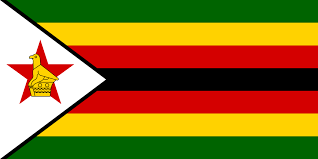THE European Union Observer Mission has deployed 44 additional short-term observers to all the country’s 10 provinces, bringing the total number of European Union Observers deployed outside Harare to 90 ahead of the general elections this Wednesday.
The European Union Observer Mission this Sunday made its final deployment of observers across the country.
The European Union Chief Observer, Mr Fabio Castaldo briefed the media in Harare this Sunday during the deployment process.
“The EU observer mission is impartial, its mandate is to observe all aspects of the electoral process and assess the extent to which the elections comply with international and regional commitments for elections as well as with the laws of Zimbabwe.
Everyone on the mission is experienced and understands that they are here to observe and not interfere with the process. They are here to watch and not to supervise. Although election day is an important element of our observation, the mission in Zimbabwe is to assess all aspects of the elections over the entire duration of the process,” said Mr Castaldo.
The European Union Observer Mission will present its initial findings and conclusions of the mission two days after the polls and will remain in the country to observe the post-electoral environment.
Several missions, including the SADC, African Union and Commonwealth observer missions, are in the country to observe the general elections. ZBC News






